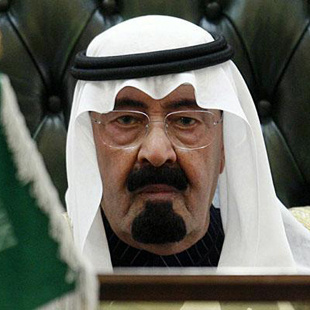The Motivation Behind Arab Wars

In the current situation there is a great wave against the dictator regimes that have inherited kingdoms and nations. These regimes are usually based on inherited power, and their legitimacy is not based on their people. Another problem with these regimes is the deep corruption existing in every aspect of them.
Therefore, the reason behind these demands for change in the region stems from within these countries. (A country such as Egypt has the issue of Israel alongside domestic issues as well.)
We can conclude that the current developments in the Middle East stem from within, and their people are trying to define a national or Islamic identity for themselves.
After the 9/11 attacks, world powers- including the United States- came to the conclusion that they could no longer support dictators the way they had done before. Due to their pragmatic approach, the Americans decided that they would lose the whole game if they acted as they always had. Therefore, they were forced to manage the crisis in the region. In a country like Egypt, their management was successful to some extent.
Therefore, as stated before, internal factors of change are present in each of the countries in the region, and as such external elements find it hard to withstand them.
With this perspective, the United States will be challenged by some of the countries in the region because the US sees its interests in not standing against the popular uprisings in some countries, but the regional powers cannot tolerate that stance. For example, in the case of Egypt, Saudi Arabia, the UAE, and Israel, all of them take the same stand, and all four disagree with the US in some ways.
We should not underestimate the power of regional governments. Countries that are on the verge of collapse often want to escape their problems through different avenues. In war theories, the concept of escape is very important, which holds that one of the reasons a country might be at war is to escape its internal problems. Therefore, in the case of Bahrain, some countries might escalate the crisis to international levels by bringing other elements- like Iran- to the conflict.
Therefore, if we carefully observe the issue we will understand that the main problems are internal issues. The main subject is people demanding their right to determine their destiny. Meanwhile, international players have dual choices. In some cases, they see their long-term interests in supporting the people, and in other cases they do not.
Therefore we should distinguish between the interests of the people, governments, and powers such as the US. One of the characteristics of these developments is that even trivial players can play a great role in this situation. The government of Bahrain- that rules over a small country- can become of great importance in the current situation.
How could the current situation lead to a war in the region, and who would support such a war? Major powers like the US cannot be the incentive for such a war. But regional governments who are in danger are willing to expand the problem beyond their borders so as to escape their domestic problems.
The Islamic Republic has always supported the right of the people in determining their own future, and therefore we should not diverge from that message. We should continue to support the demands of the people but we should remember that our support must not appear as intervention.
To consider its long-term interests, the Islamic Republic should comply with the popular demands of the region and not with the military powers.

